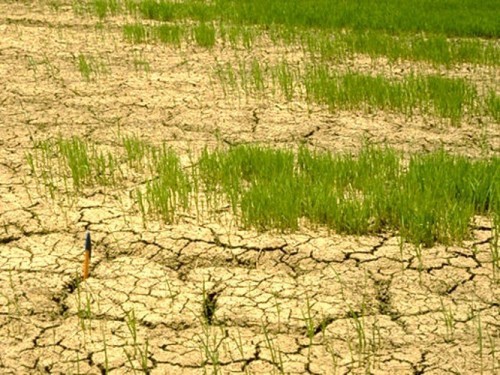““The vision of African Union in establishing ARC was to present a powerful value proposition that will help Member States better understand their disaster risk profiles, access viable early warning tools, and develop a preparedness plan for protecting livelihoods of their vulnerable population from predictable natural disasters. The Government of Senegal has been exemplary in participating in various ARC risk pools since 2014. This is the spirit of the ‘Africa We Want’, and it is very laudable” – UN-ASG Mohamed Beavogui, DG, ARC
Abidjan, Thursday, September 05, 2019 – The Government of Senegal will receive a minimum payout of US$22m from African Risk Capacity Insurance Limited (ARC Ltd) to cover losses from crop failures caused by the severe rainfall deficits in the 2019 agricultural season.
Announcing the anticipated payout, leadership of African Risk Capacity Group reiterated the institution’s strong commitment to working with Member States to build resilience and reduce vulnerability against natural disasters in Africa.
“The vision of African Union in establishing ARC was to present a powerful value proposition that will help Member States better understand their disaster risk profiles, access viable early warning tools, and develop a preparedness plan for protecting livelihoods of their vulnerable population from predictable natural disasters”, said ASG Mohamed Beavogui, the Director-General, African Risk Capacity Agency (ARC Agency). “The Government of Senegal has been exemplary in participating in various ARC risk pools since 2014. This is the spirit of the ‘Africa We Want’, and it is very laudable”, ASG Beavogui concluded.
As early as August 2019, Africa RiskView, the software underpinning the ARC parametric model, alerted the Government to the irregular and insufficient rainfall in the western regions of the country and warned that a minimum of 964, 000 people will be affected by the rainfall deficit this year. Based on pre-agreed parameters, the indicated number of people was above the threshold for the triggering of an ARC Ltd insurance payout.
The payout is expected to happen two weeks following the end of the farming season, which is set on 21st November 2019. Of the US$22 million, the Government of Senegal will receive a minimum amount of US$12million; while the Start Network, a consortium of international NGOs that collaborates with the Government, will receive the balance of U$10million. This is in line with an existing policy signed with the Government of Senegal for early and expedited response in the event of a drought.
The Government of Senegal, Start Network and other technical partners are set to meet from 5 – 6 September 2019 to finalize implementation plans for a coordinated and swift launch of pre-agreed and coordinated activities, as elaborated in an existing Contingency Plan, towards bringing immediate relief to the vulnerable people.
Commenting on the announcement, Mr. Abdoulaye Noba, Director of Civil Protection, and Programme Supervisor for the Government of Senegal’s work with African Risk Capacity, acknowledged the transparency of the process and the promptness of payouts. “We were among the first countries to embrace the African Risk Capacity mechanism for the protection of our people from recurring droughts. This is the second time the Government of Senegal is receiving payout from ARC Insurance Ltd. With the expected payout, we will have the resources to ensure that our people get relief on time to better secure their livelihoods.’’
The expected payout will bring the total disbursements by ARC Ltd to the Government of Senegal to US$ 38 million since 2014.
About African Risk Capacity (ARC): The African Risk Capacity model is an innovative, cost-effective, and is proving that it can assist Member States to strengthen their capacities to better plan, prepare and respond to extreme weather events and natural disasters, thereby achieving the food security for their populations. Since 2014, 32 policies have been signed by Member States with US$73million paid in premiums for a cumulative insurance coverage of US$553million for the protection of 55million vulnerable population in participating countries.



